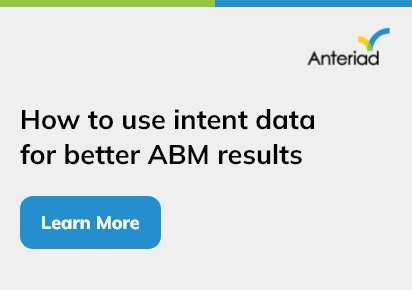In today’s hyper-connected digital economy, marketing success depends on more than catchy slogans or eye-catching visuals. Modern businesses need holistic strategies that integrate every touchpoint of the customer journey. That’s where 360 degree digital marketing services come into play. They combine SEO, content marketing, social media, paid ads, email, and web analytics into a single, unified approach.
But while a 360 strategy covers all channels, what truly gives it power is data. Without the right insights, even the most comprehensive marketing plan risks becoming guesswork. This is where a data analytics platform can transform your results, turning raw numbers into actionable intelligence that fuels growth.
Also Read: The Future of 360° B2B Digital Marketing: Trends to Watch in 2025
What Are 360 Degree Digital Marketing Services?
At its core, 360 degree digital marketing services mean leaving no stone unturned. Instead of treating each channel—like search, social, or email—as a separate campaign, they work together as part of a bigger picture.
For example, insights from social media engagement can inform email content, while SEO performance can guide paid ad targeting. This integration ensures consistency, maximizes reach, and delivers a unified brand experience.
However, the complexity of managing so many channels also creates challenges. How do you know which campaigns deliver the best ROI? Which customer segments respond best to which channels? How do you align content across multiple platforms while staying cost-effective? The answer lies in business data analytics.
The Role of Data in Modern Marketing
Today’s customers interact with brands across multiple platforms, leaving behind massive amounts of data. This data comes from clicks, searches, purchases, app usage, email responses, and more. If harnessed correctly, it can reveal:
- Which marketing channels deliver the highest conversions
- Customer behavior patterns across devices and platforms
- The lifetime value of different customer segments
- Campaigns that waste budget without real returns
By using advanced data analytics solutions, businesses can connect these dots and make smarter, faster decisions.
How a Data Analytics Platform Elevates 360 Degree Digital Marketing Services
A data analytics platform brings structure to the chaos of big data. Instead of manually analyzing metrics from Google Ads, Facebook, LinkedIn, and email platforms separately, it integrates them into one view. Let’s explore how it supercharges marketing efforts:
Unified Customer Insights
Marketing works best when it’s customer-centric. A data analytics platform consolidates interactions from different channels to build a complete customer profile. This helps businesses tailor their 360 degree digital marketing services to audience needs, leading to more personalized campaigns.
Predictive Analytics for Smarter Decisions
Thanks to AI and machine learning, advanced data analytics solutions can forecast trends—such as which products are likely to sell more next season or which customer segments are at risk of churn. This allows businesses to stay ahead of competitors and fine-tune their strategies.
Optimized Budget Allocation
One of the biggest challenges in digital marketing is overspending on underperforming campaigns. By applying business data analytics, companies can identify the highest-performing channels and allocate budgets more effectively. Instead of relying on assumptions, decisions are based on hard evidence.
Real-Time Performance Tracking
With traditional campaigns, businesses often reviewed performance after the fact. A data analytics platform provides real-time dashboards, enabling marketers to tweak campaigns instantly. For example, if a paid ad underperforms in one region, budgets can be redirected on the fly to more responsive markets.
Seamless Data-Driven Consulting
Often, companies hire data analytics consulting firms to interpret insights and recommend strategies. When combined with 360 degree digital marketing services, consulting ensures that campaigns are backed by expert analysis and industry benchmarks—not just raw numbers.
Real-World Example
Consider a retail brand offering both online and in-store shopping. By adopting 360 degree digital marketing services supported by a strong data analytics platform, the brand can:
- Track which digital ads drive foot traffic to physical stores
- Use predictive analytics to stock trending products
- Personalize email campaigns based on browsing history
- Reduce ad waste by targeting only high-intent audiences
The result? Higher conversions, improved ROI, and a seamless brand experience across all channels.
The Future of Data-Driven 360 Marketing
Looking ahead, the link between marketing and data will only deepen. Emerging technologies like AI-powered chatbots, voice search analytics, and customer journey mapping will further enhance the effectiveness of 360 degree digital marketing services.
Businesses that fail to integrate data analytics solutions risk falling behind competitors who make smarter, data-backed moves. Whether it’s investing in a robust data analytics platform or partnering with data analytics consulting firms, the message is clear: data is the fuel that powers the engine of modern marketing.
Conclusion
A well-designed 360 degree digital marketing service covers every channel of customer engagement. But without the insights of a data analytics platform, businesses risk flying blind. By combining data-driven intelligence with holistic marketing, companies can achieve more accurate targeting, optimized budgets, and stronger customer connections.
In the digital-first era, success isn’t about choosing between marketing creativity and analytics—it’s about combining them. For businesses ready to thrive in 2025 and beyond, the winning formula is simple: 360 marketing powered by advanced analytics.



